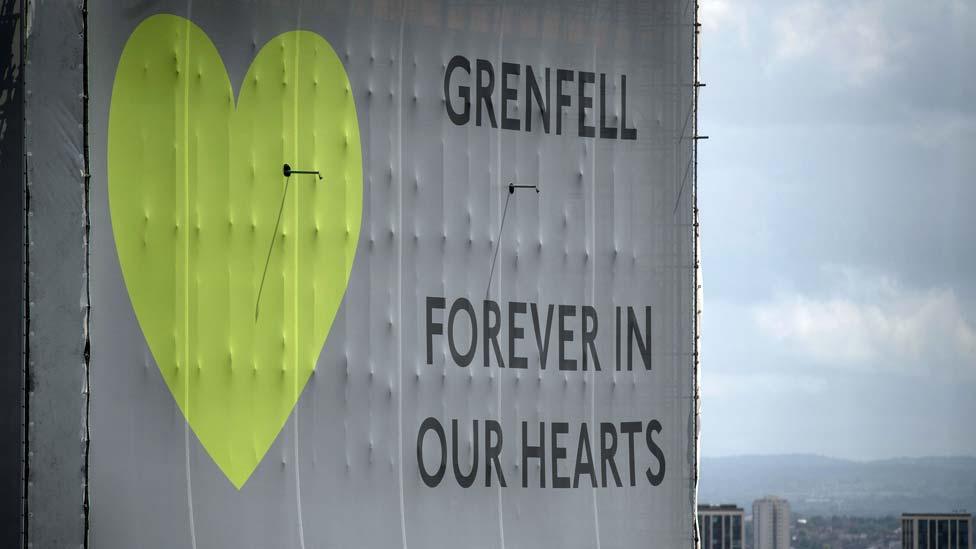London tower block 'mouldy and damp' after cladding removed
- Published
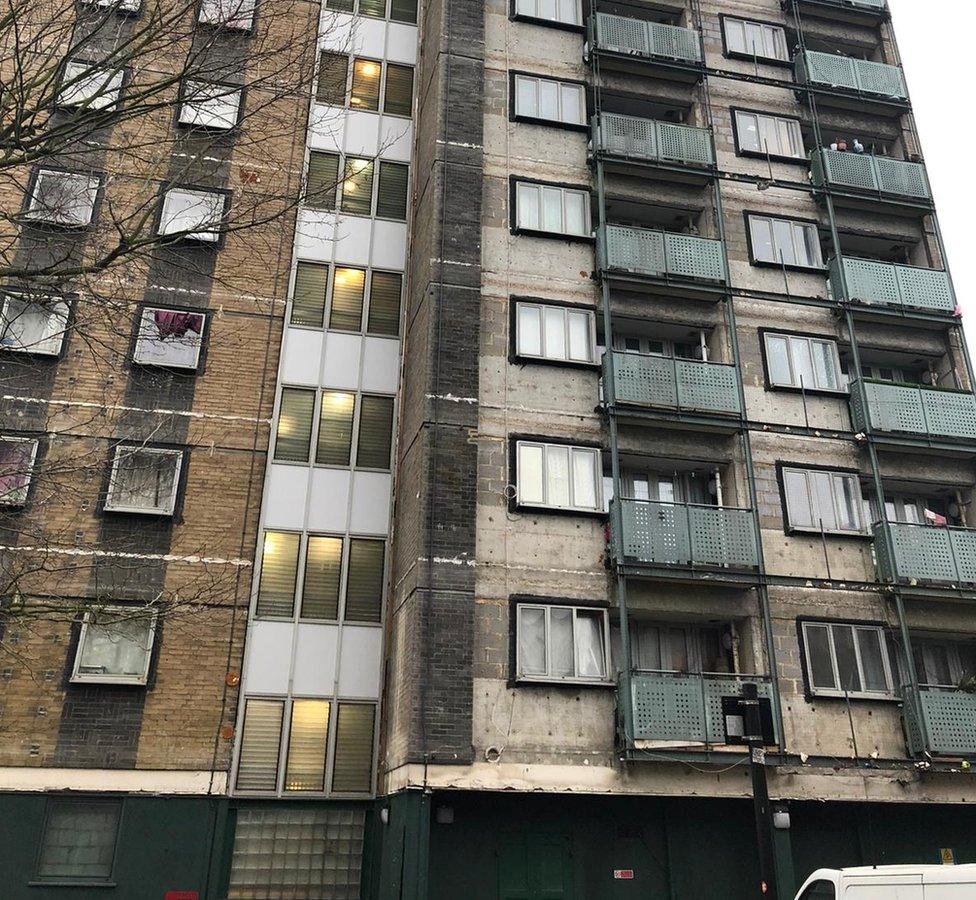
The borough council removed cladding from Hazlewood Tower (right) in November 2018
Residents of flats near Grenfell Tower have claimed the removal of flammable cladding more than a year ago has left homes wet, cold and damp.
One woman who complained to the council of mould in her daughter's bedroom, said she was given a hat, gloves and blankets to keep warm.
Kensington and Chelsea council removed the insulation from Adair and Hazlewood towers in west London in November 2018.
It said it was putting together a compensation package for occupants.
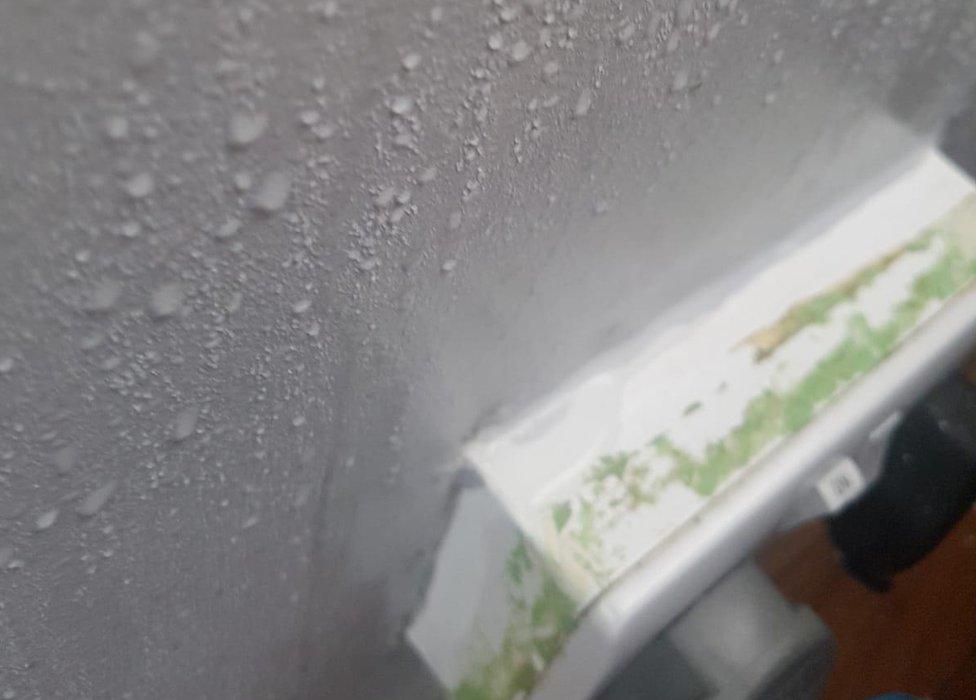
Condensation on the interior walls inside one of the flats
The removal of the cladding and polystyrene insulation was prompted by the deaths of 72 people in a fire at Grenfell Tower in June 2017.
A report - following the first phase of the public inquiry into the Grenfell fire - found in October last year that the tower block's cladding did not comply with building regulations and was the "principal" reason for the fire's rapid and "profoundly shocking" spread.
Sue Duggings, who lives on the seventh floor of Hazlewood Tower in Golborne Gardens, said the replacement insulation was taking too long to fit.
She said residents were told they would not incur extra heating costs and although the council upgraded the heating system to be on constantly, many radiators were broken.
"So a lot of people are getting electric heaters to keep themselves warm but of course that's upping their electricity bills," she added.
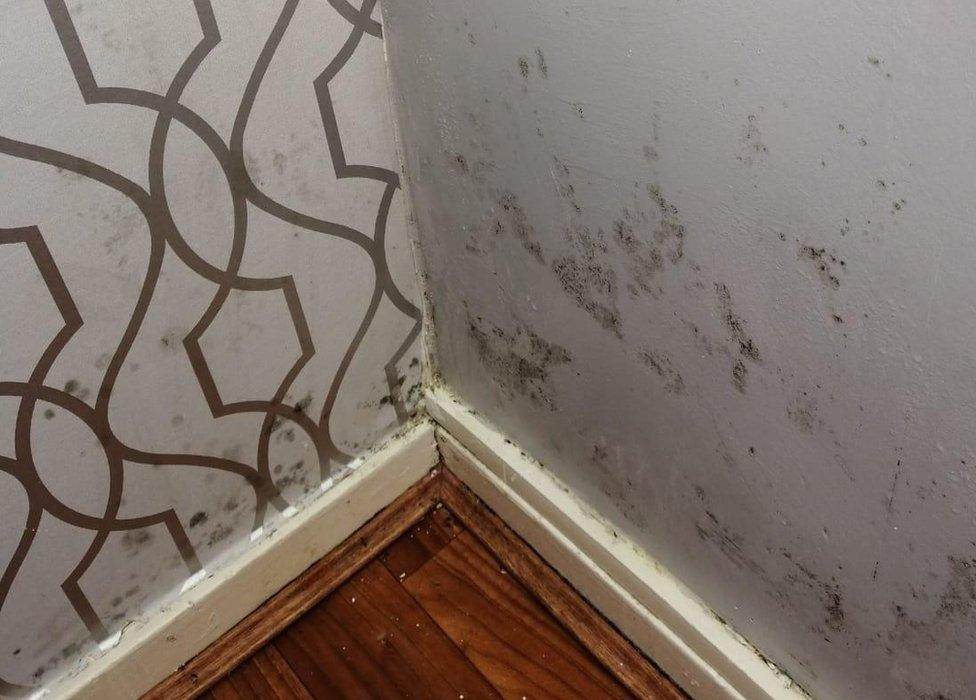
Residents claim the lack of insulation has caused damp and other rain-related issues
Fatima Bourenane said she was given gloves and hats by the council after seeking help with mould in her third-floor flat.
"It's just cold, freezing, muddy with the water. I have to use my own heaters and the bill is very high," she said.
Another resident, Richard Cracknel, added: "The block is acting like a sponge because when it rains the walls are absorbing the water into the walls and into the flat.
"They have treated my walls but the water is still falling in pools on the kitchen floor."
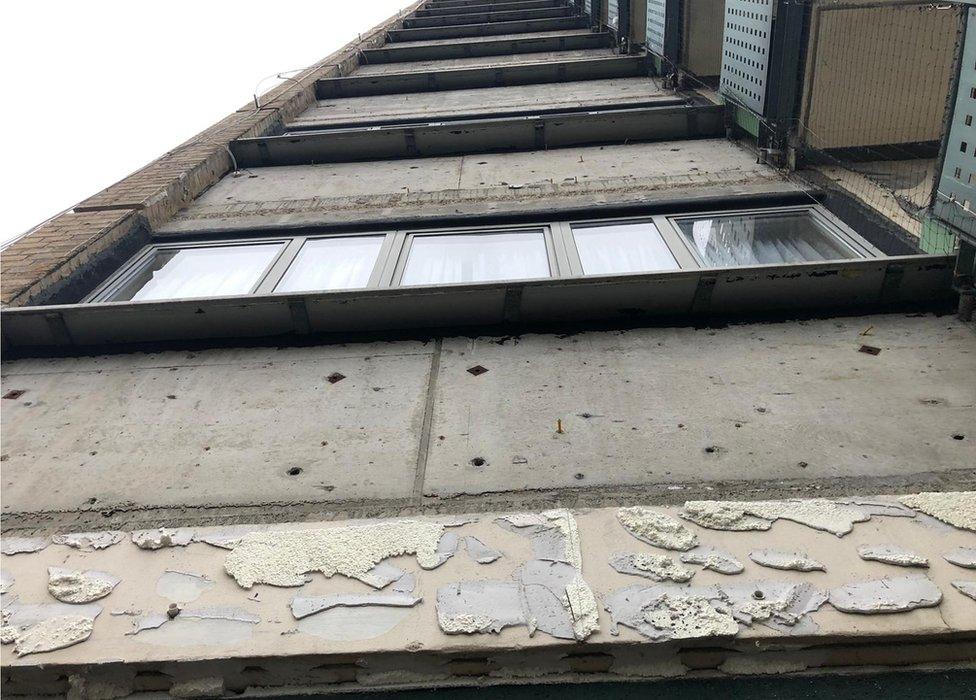
Cladding was removed from outer walls to prevent the spread of fire
Deputy council leader Kim Taylor-Smith agreed the replacement "was a taking longer than originally envisaged".
He added the work would be carried out in July, after further consultation with residents.
"In the meantime we will continue to support them and we will compensate people for the disruption," he said.
The second phase of the independent inquiry into the Grenfell Tower fire will take place on 27 January.
- Published29 October 2019
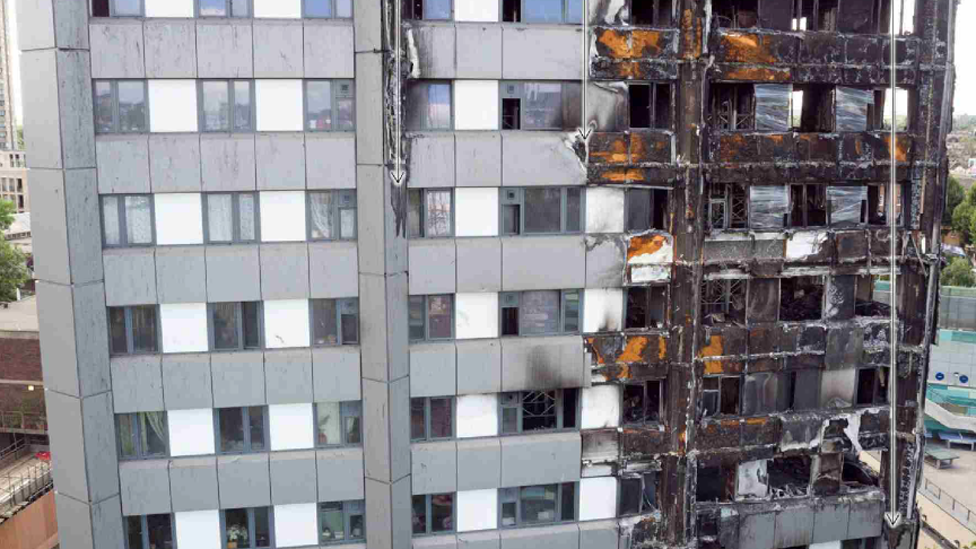
- Published29 October 2019
